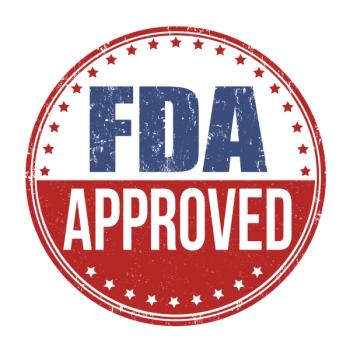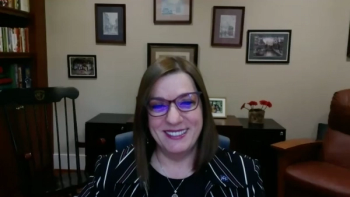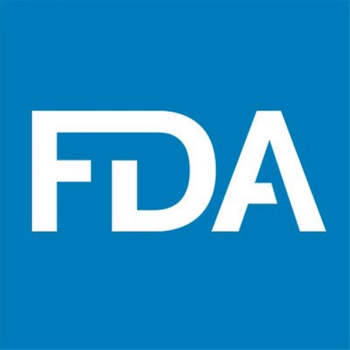
The American College of Rheumatology (ACR) announced a number of policy priorities that it is encouraging the new Congress and administration to focus on during the year.

The American College of Rheumatology (ACR) announced a number of policy priorities that it is encouraging the new Congress and administration to focus on during the year.

On this episode, we speak with the coauthor of a paper looking at the mental health stressors facing first responders and health care workers during the coronavirus disease 2019 (COVID-19) pandemic. The paper found that a sizable number of these frontline workers are at risk for psychiatric illnesses at severity levels higher than other national disasters, including 9/11 and Hurricane Katrina.

Periodic review of treatment safety and monitoring are necessary as medical centers increasingly use newer disease-modifying therapies earlier in the course of multiple sclerosis.

President Joe Biden reportedly will take executive action to reopen federal marketplaces selling Affordable Care Act (ACA) health plans; Moderna investigating booster shot designed to be more effective against emerging variants of coronavirus disease 2019 (COVID-19); Brazil coronavirus variant is found in Minnesota.

Voclosporin, the first FDA-approved oral therapy for lupus nephritis, will be sold as Lupkynis by Aurinia Pharmaceuticals and is approved for use in conjunction with immunosuppressive treatment.

Metabolic surgery is more effective than conventional medical therapy in the long-term control of type 2 diabetes (T2D), according to results of a 10-year follow-up study of a randomized controlled trial published in The Lancet.

Every week, The American Journal of Managed Care® recaps the top managed care news of the week, and you can now listen to it on our podcast, Managed Care Cast.

Patients with rheumatoid arthritis (RA) were asked their preferences of second-line treatment options such as biologics and Janus kinase inhibitors, taking into account such factors as the probability of severe side effects, treatment effectiveness, administration route, and more.

The FDA approved the first injectable monthly treatment for HIV; Eli Lilly announced positive effects of its monoclonal antibody treatment for coronavirus disease 2019 (COVID-19); President Joe Biden will sign an executive order on food insecurity.

Findings of the Change Healthcare 2020 Revenue Cycle Denials Index indicate that since the onset of the coronavirus disease 2019 (COVID-19) pandemic, medical claim denials have risen 11% nationwide, with the most denial rates found in regions with the highest first wave of outbreaks.

Both women and men have a greater chance of 90-day hospital readmission when they are considered to be in frail condition from heart failure.

Nephrologist Mary Dittrich, MD, the chief medical officer and executive vice president of U.S. Renal Care as well as cofounder and partner of Boise Kidney & Hypertension Institute, discusses how to keep patients safe while providing high-quality kidney care during the coronavirus disease 2019 pandemic.

Every week, The American Journal of Managed Care® recaps the top managed care news of the week, and you can now listen to it on our podcast, Managed Care Cast.

Based on US health insurance consumer behavior reported in the eHealth Insights: 2020 Retrospective report, notable trends of the past year to watch for in 2021 include the popularity of $0 premium Medicare Advantage plans, the rise of telemedicine, and potential hesitancy against taking a vaccine for coronavirus disease 2019.

Focused ultrasound subthalamotomy was shown to improve motor features among patients with Parkinson disease who present with asymmetric symptom severity.

The US Surgeon General, Vice Admiral Jerome Adams, MD, and other officials urged for greater uptake of FDA-approved treatments for coronavirus disease 2019 (COVID-19) in an effort to slow the surge of cases requiring hospitalization. However, logistic, monetary, and efficacy concerns may have drastically limited the amount of biologic treatments actually administered to patients.

As coronavirus disease 2019 (COVID-19) continues to drive significant change in health care delivery, physician leaders affiliated with the Council for Accountable Physician Practices have worked to increase investment in strategies to address disparities in care exacerbated by the pandemic, such as value-based care and telemedicine.

Starting in 2 weeks, allocation of coronavirus disease 2019 (COVID-19) vaccines will be based on the percentage of doses each state has successfully administered thus far and the number of residents aged 65 or over, according to HHS.

On this episode of Managed Care Cast, we speak with the new chief financial officer of Strive Health, a value-based kidney care company that works with payers and providers to create an integrated care delivery system for chronic kidney disease and end-stage renal disease (ESRD). We discuss the changes coming to nephrology practices, as well as new ways of looking at the whole patient to halt the slide to irreversible ESRD.

Telehealth is helpful, but it is not enough to make up for the delay in cancer diagnoses occurring as a result of the pandemic, said Sibel Blau, MD, of Northwest Medical Specialties and Quality Cancer Care Alliance.

Defective metabolism of levodopa in the brain was associated with a decline in the drug's efficacy over time and the adverse effect of dyskinesia among patients with Parkinson disease.

The FDA today accepted Boehringer Ingelheim and Eli Lilly’s supplemental New Drug Application for Jardiance (empagliflozin), the sodium glucose co-transporter 2 inhibitor being investigated for use in patients with heart failure.

Patients often ask how long they have to stay on biologic treatment for atopic dermatitis (AD), but there is a risk if therapy is stopped, says Matthew J. Zirwas, MD, a dermatologist in Ohio.

Age, renal disease, and suboptimal myeloma control were among the many factors identified in a recent study as increasing the risk of death from coronavirus disease 2019 (COVID-19) for patients being treated for multiple myeloma (MM).

Addressing the social health needs of those ill with coronavirus disease 2019 (COVID-19) is a challenge for providers and health care systems. On this episode of Managed Care Cast, we speak with Bechara Choucair, MD, senior vice president and chief health officer for Kaiser Permanente, who discusses the organization's guide that walks clinicians through considerations to keep in mind when screening patients in order to improve health outcomes as well as reduce community transmission.

259 Prospect Plains Rd, Bldg H
Cranbury, NJ 08512
© 2025 MJH Life Sciences®
All rights reserved.
